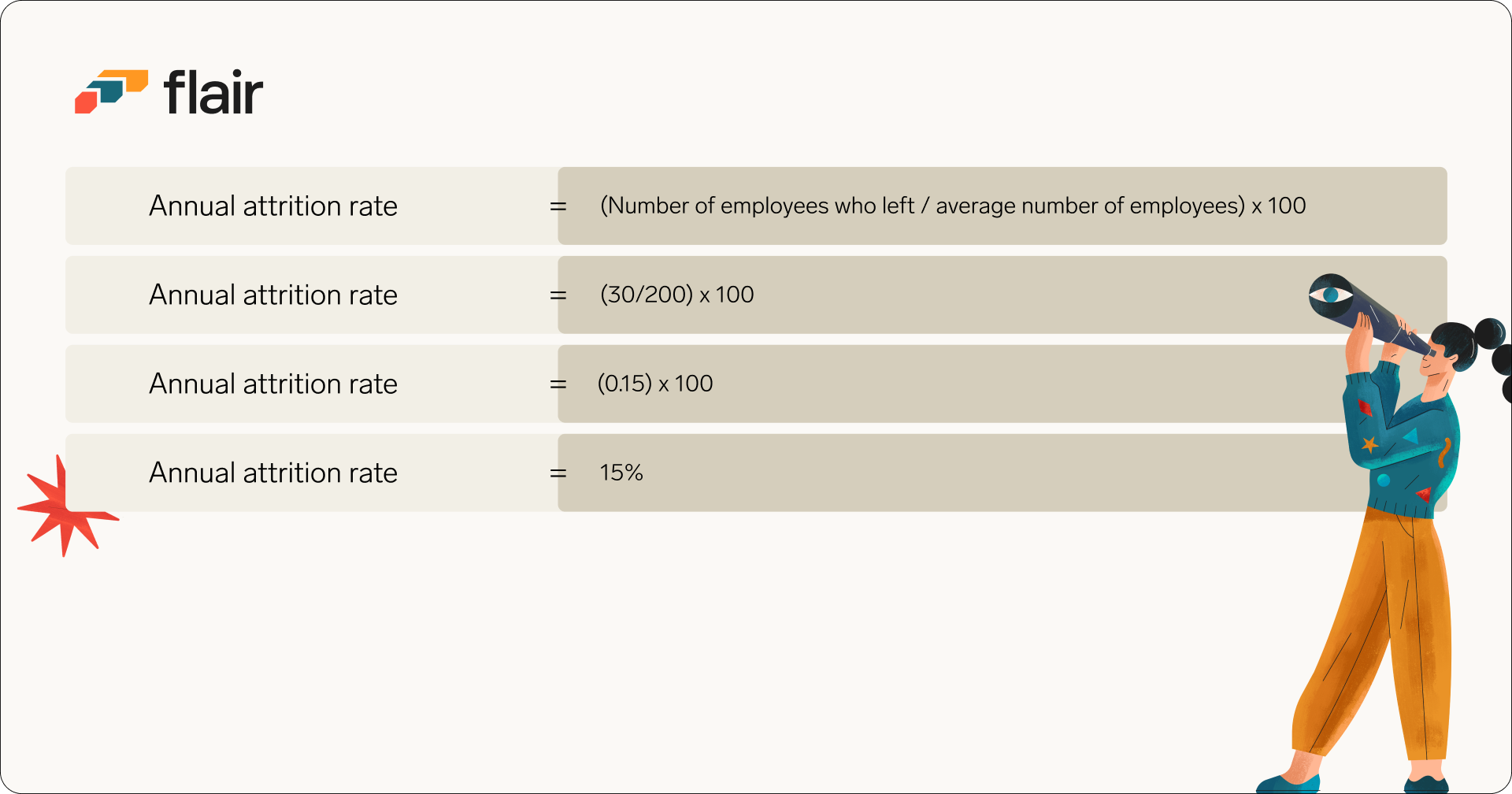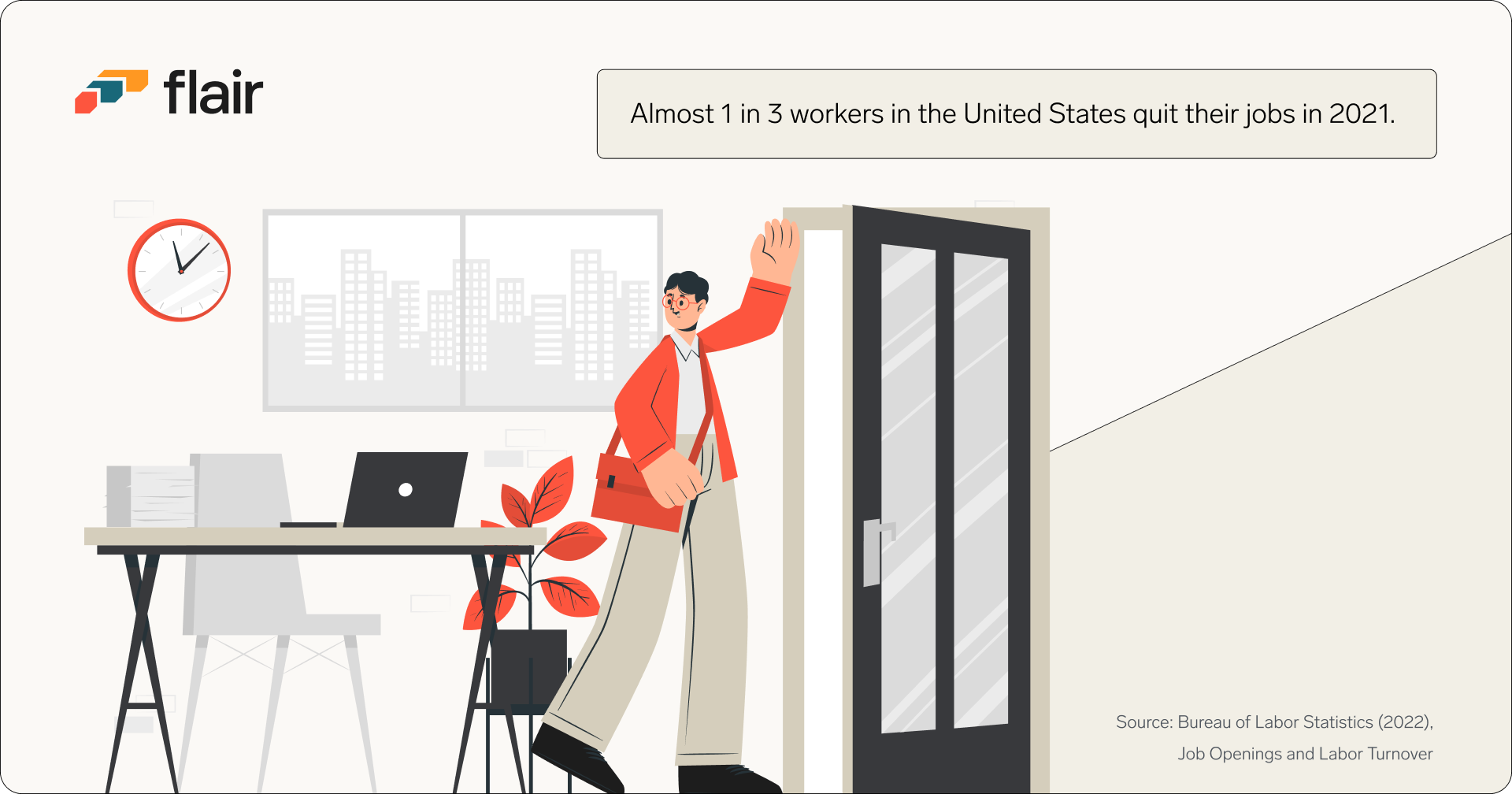Origins to Innovation: Cloud Computing's Impact on HR
Do you know why it's called cloud computing and are you aware of the benefits to HR?
- 06 Jun 2024
- Max 11 min read
The Number One HR Solution on Salesforce
If you’re currently dealing with a case of rapidly departing employees, it’s time to find out why they feel the need to leave. After all, becoming aware of any issues regarding your workplace is key to preventing further employees from handing in their resignations.
You don’t want high staff turnover to affect your business practices, and that’s where an exit interview comes in handy. This is your last opportunity to talk to your employee and see why they’re leaving, what can be improved, and what their new position offers.
No one likes to lose employees, especially knowing that it can hurt your bottom line. A Glassdoor study found that the average cost to hire a new employee is $4,000, depending on the employee's role and the company's industry. That’s no small expense, especially if you’re doing it often. Plus, when employees leave, so does all their crucial knowledge of your operations and company history. It takes months, and sometimes years, to train a new employee to fill those shoes.
It’s only natural that a few employees will walk away from your company. And it is only natural to feel wronged or blindsided by this decision. Regardless, you need to quickly recover and take the necessary actions to transition them out of their position. This includes holding an exit interview. But how can you reasonably and competently conduct an exit interview? And how can you ensure you’ll get to the true heart of the issue?
Knowing how to put together an effective exit interview isn’t always a simple task. It is a delicate process that takes skill, diplomacy, and planning. And that’s why this article is here; with the points below, we’ll help you put together a proper template for any exit interviews you need to hold in the future.
Is it always a big deal when an employee quits? That depends on how often it is happening and why. Some level of turnover is normal – people retire, move to new cities, and have babies. Specific industries also see higher turnover rates, like entertainment companies and tech companies. These are factors you simply can’t control. But how can you measure how much turnover is too much? You can calculate your attrition rate. Here is a general formula you can follow.

Your attrition rate calculates how many people are leaving your company, and you can use this rate to determine whether there is cause for concern. Any data-driven company should know its attrition rate and why it matters. If your rate is much higher than your industry’s average, you should consider doing some work to improve your company culture.
We hear the term company culture constantly, and it can seem like a vague concept at times. Is company culture the ping pong tables and Friday happy hours that we see technology companies advertising? We don’t necessarily think so. The most important thing about company culture is creating an environment in which employees feel comfortable and enjoy showing up every day, whether virtually or in the office. This can be shown through your business practices and policies.
Another major element that factors into your company culture is professional development. If you adjust your business models to advocate for hiring internally and focus on your employee's career goals, you will notice a major difference in employee satisfaction.
The job market is ever-evolving, and more exciting positions are coming up every day. You need to be able to keep up with this and offer employees an enviable position and career path they won’t want to lose. When employees leave, you should jump at the chance to figure out what went wrong and why they are leaving. Is their new job offering better benefits? Higher pay? More flexibility? A better career path?
This can be a great time to inspect your company policies from a financial perspective regarding pay and benefits and ensure that you are up to par with industry and locational standards. Looking at your policies with a fresh perspective may help you find the change you need to make.
An exit interview is an interview that is held when an employee decides to separate from a company. Whether they’re leaving for a new job or have not clarified their purposes yet, the exit interview exists to help this transition occur more smoothly. It is also the proper time to offer alternatives to the employee and have candid conversations about why they’re leaving in the first place.
After all, no company wants to lose a valued contributor. As an employer, when you receive a resignation letter from an employee, you need to know that your work is not yet done.

It’s important to ask questions, but don’t hound the employee about their decision or assume it was made due to a significant error or toxic behavior within the organization. Try and ask meaningful questions and treat the employees with respect to figure out what may have happened.
All in all, it’s beneficial to focus on both the beginning and end of an employee’s tenure. Knowing why they want to leave is a huge part of improving standards and identifying toxic behavior across a company and could provide you with competitive insight into the job market at large.
For example, perhaps your employee is leaving due to the fact that their new job offers benefits such as remote work and unlimited PTO that many up-and-coming tech companies are offering. You may consider changing your business models to at least partially employ these strategies.
It can be hard to compete with the deep-pocketed technology companies that are offering above-average benefits and pay, but you should consider changing your policies to adopt some of their methods.
In an exit interview, both an employer and employee have the chance to make their views known. Using both informal and formal questions, you can get the kind of detailed honesty a company needs to secure skill and talent in the modern world.
No matter what valued team members or top performers a company might be losing, the exit interview is there to give an employer a look into their world. It tells them what kind of job description or job offer is most enticing to the people who have the most to offer.
And most of all, it enables an employer to work out what elements of job satisfaction are missing from their workplace. An effective interview process can make all the difference.

An employee exit interview ensures both parties can give feedback. Whether the resignation was voluntary or not, the employee is more likely to talk honestly and openly than ever before.
The employer is in a position to communicate their care and appreciation for the employee. This is the time to listen to the employee’s opinions and ask questions. You want to make a good final impression. Similarly, the departing employee has the chance to air both the pros and cons of holding a position within the company. In a perfect exit interview situation, both sides are left feeling satisfied and informed.
In order to conduct exit interviews effectively, the employer needs to know what questions provide the most actionable insight. At the same time, they need to know how to act within the interview itself. In a traditional entry interview, the employer would lead the conversation, usually accompanied by a panel of other high-level executives. However, this should be turned on its head for the exit interview. The employee should get to choose who they speak to during the interview, and they should be the ones to open up the line of dialogue.
Indeed, employers should be sure to bring along prepared questions, but they should never try to push these questions too hard. If an employee doesn’t want to talk about specific topics, it’s okay to move on.
Common questions to ask at an exit interview include:
The key questions to ask are ones that encourage employee feedback and open up honest conversations with the employee about their potentially negative experience or reason for leaving their position. These kinds of questions are essential as they have the opportunity to weed out any toxic behavior that may have occurred during this employee's time with the company. Sometimes, employees might be afraid to mention toxic behavior during their time at a company, but they have less fear of retribution when they are on their way out.
This might be as simple as the employee feeling that there isn’t enough interest in their career goals or career development. Or as concerning as a manager treats some employees poorly while showing favoritism to others. Whatever it is, this is the time to get to the bottom of it. On a more positive note, you should also try and seek practical ideas from the employee about how company culture could be improved.
The majority of organizations opt to hold exit interviews. Who handles the exit interview varies depending on the company and, sometimes, the employee's reason for leaving the organization. For whatever reason, the departing employee may not want the HR professional or their direct supervisor involved in the process. If possible, it is a good gesture to honor this wish.
They may want to speak to one of their senior leaders instead – someone they know has a lot of authority within the department level they’re leaving. In doing so, they have the chance to go ‘right to the top’ with their points of consideration and may feel the exit interview is more worth their time. They might also feel that their direct supervisor has far more knowledge about their specific position and employment than the HR professional and their input will have a greater potential impact on the department.
While most HR professionals have strong working relationships with employees, many employees leaving a company may simply feel that talking to them won’t quite get the point across about their personal experience. They may want to speak directly to their supervisor.
In a study done by the Harvard Business Review, 70.9% of companies had their HR departments handle the exit interview process. That is well over half of companies and is clearly the norm across industries and companies. Approximately 19% of companies had the departing employees’ direct supervisors handle the exit interview, and 8.9% delegated the job to the immediate supervisor’s manager.

Using an external consultant isn’t typically a recommended course of action unless necessary, as the external consultant won’t have a personal relationship with the employee. This will result in a less productive interview and may leave a bad taste in the employee’s mouth.
About 8.2% of organizations used more than one interviewer. At times, it can be useful to have a second person there who can corroborate any claims made by the employee leaving. Especially if the employee is leaving for a contentious reason, having a second interviewer can help ease tension and confirm what is said if it is brought up later. It can also diffuse tension in the meeting, depending on the situation.
Having one interviewer has perks as well, though. For one, the employee will likely feel more comfortable speaking one-on-one rather than being outnumbered in the interview process. Who you decide to have conduct the exit counseling and how many people are in the room are up to you – but having an exit interview is crucial.
Exit interviews are best held on the departing employee’s last day of work. When someone leaves a company, an exit interview should be scheduled with clear communication to the employee about what they can expect in the discussion.
Failing to schedule exit counseling is a wasted opportunity to dig into the employee’s knowledge and experience. Employers should take some time to talk to the departing employee about their choice to take part in the exit interview when they hand in their notice. This helps ensure they’re ready for this kind of interview; they may need to prepare their statements, especially if their cause for leaving is an emotional one. They may also not be expecting to discuss if this is their first exit interview, so a heads-up may be necessary. You want them to come to the meeting prepared and ready to talk.
Because HR professionals often organize the exit interviews, a typical exit interview traditionally occurs within an HR office, depending on company policies. Many companies leave exit counseling up to human resources; the HR department is usually in charge of ‘hiring and firing’ and finding solutions to employee-related matters, so it makes sense to allow them control over this initiative. Although, as discussed above, that is not always the case.
The most important factor of an exit interview process is privacy. Employees won’t feel comfortable sharing their experiences and disclosing important details if the meeting is done in a location that is not private. If you have an open-plan office, reserve a meeting room to ensure you’ll have privacy to discuss sensitive issues.
Telephone interviews aren't ideal, but in a remote work environment, they may be the only option. Telephone interviews offer less face-to-face discussion, so consider a video call instead.
To save time and resources, should you have employees simply fill out an online survey and go on their way? Substituting a face-to-face interview for a questionnaire can be counter-productive and may leave employees with the wrong impression of your company. It isn’t a good sign if you can’t make time for the employee as they gear up to leave.
You can, of course, create a questionnaire to help guide the discussion. Instead of giving it to the employee and leaving it in their hands, it’s best to follow along with the questionnaire together to open up candid conversations around it.
In Harvard Business review’s study on exit interviews, responders said that 4.4% used questionnaires. An even smaller number of them, 1.9%, used a questionnaire accompanied by a face-to-face or a telephone interview. And we’re happy to report that only 2.5% used questionnaires as the sole form of an exit interview.
An exit interview doesn’t have to be complicated, but there are some mistakes you can make. Indeed, the main mistake to avoid is letting your employee feel under scrutiny and that they have made a grave mistake leaving the company. To avoid this, prevent the interview from being overly strict or pedantic. If you want to obtain some valuable information in the form of constructive feedback, you’ll need to allow the interviewee to be as honest as possible.

You want the conversation to flow and for the employee to feel comfortable sharing helpful feedback. Remember, with honest feedback to work with, you’ll be able to improve employee satisfaction. Most importantly, don’t let the interview feel like a performance review. If anything, consider this interview to be a performance review for the company.
Ask questions to allow the employee to give feedback and critique aspects of the company. Then, once they’ve given you things to consider, don’t forget to follow up on them. Not only does this help impress new employees, but it also improves current employee engagement. Employees need to feel heard and valued. This is a chance to prove that you take employee voices into account and that you will always work to improve workplace morale and the overall company culture.

If you’re interested in improving your employee experience but you’re unsure of where to start, we can help. Download our free guide to find out how to plan and implement an employee experience strategy in your company.
That depends on your organization’s size and the type of resignation you’re dealing with. Sometimes it’s best to work with the same exit interview questions to ensure all employees are given a fair chance to express their views on the same issues.
For these situations, you can create a template of open-ended questions well before you have an employee leaving to interview. Then, you can potentially tailor a few questions to the specific employee. Make sure to include questions that you feel are relevant and that you really want to know the answers to.
An effective exit interview is meant to help all parties gain a fresh perspective. It’s an important part of streamlining company operations, and it’s the best way to capitalize on the working knowledge of the people you put so much effort into hiring in the first place.
When an employee leaves, of course, you will be disappointed, but think of it as an opportunity to learn where you have room to grow so that you can nip problems in the bud before they impact other employees.
Join flair’s newsletter to receive the latest tips & trends in the HR world.

